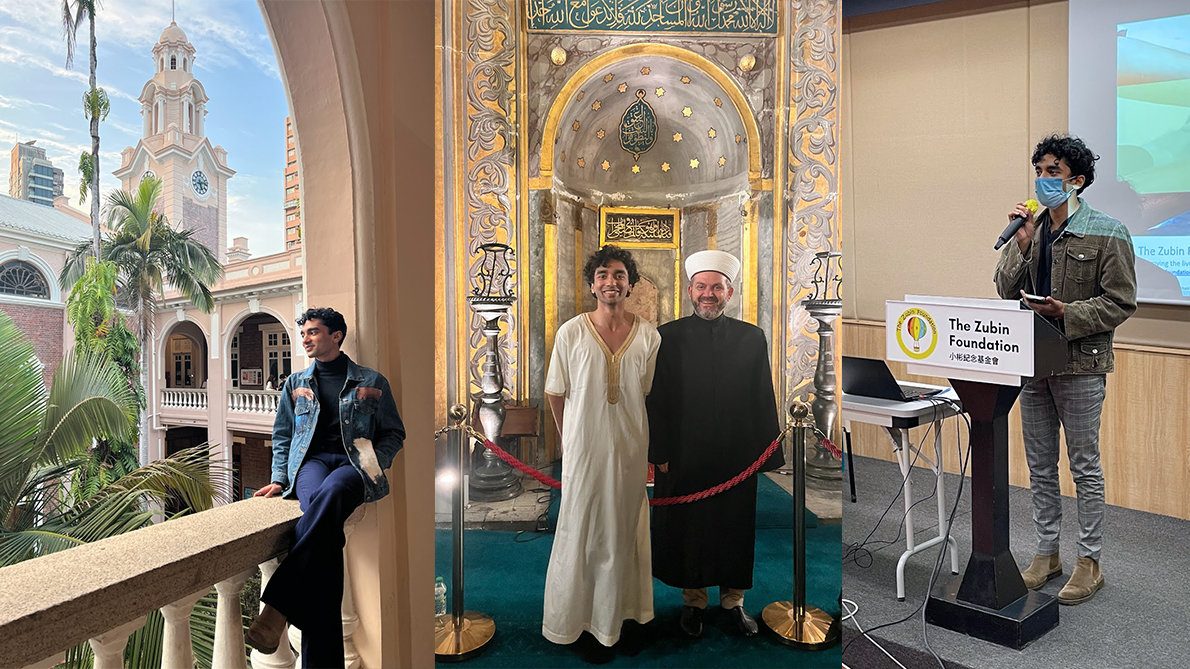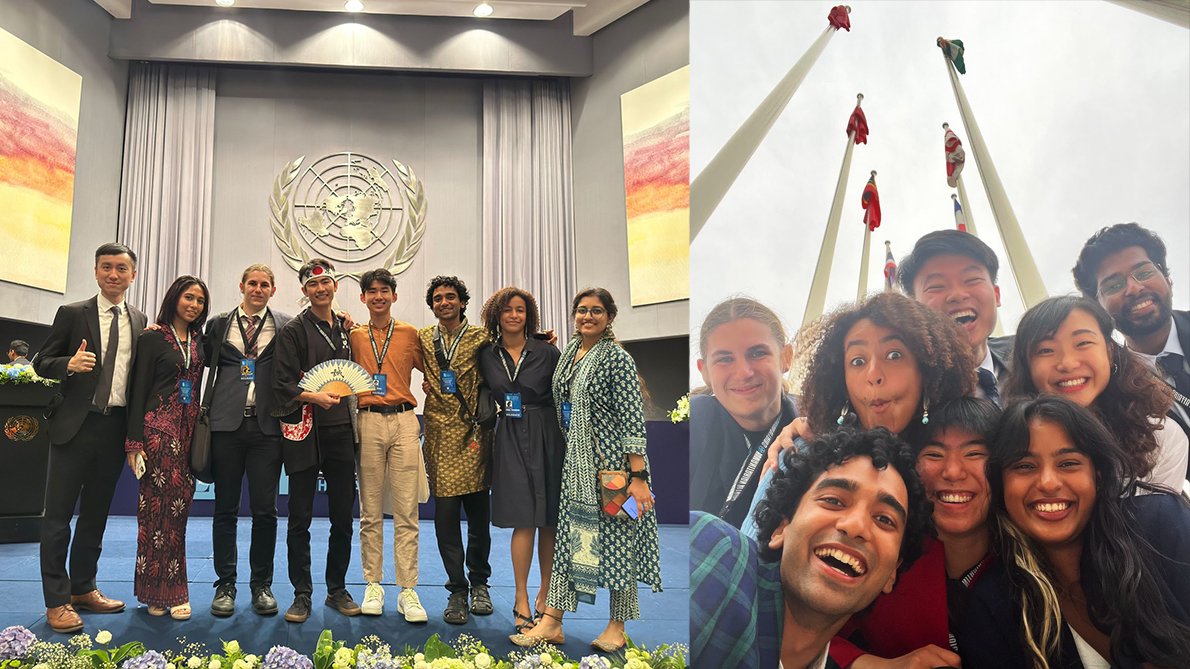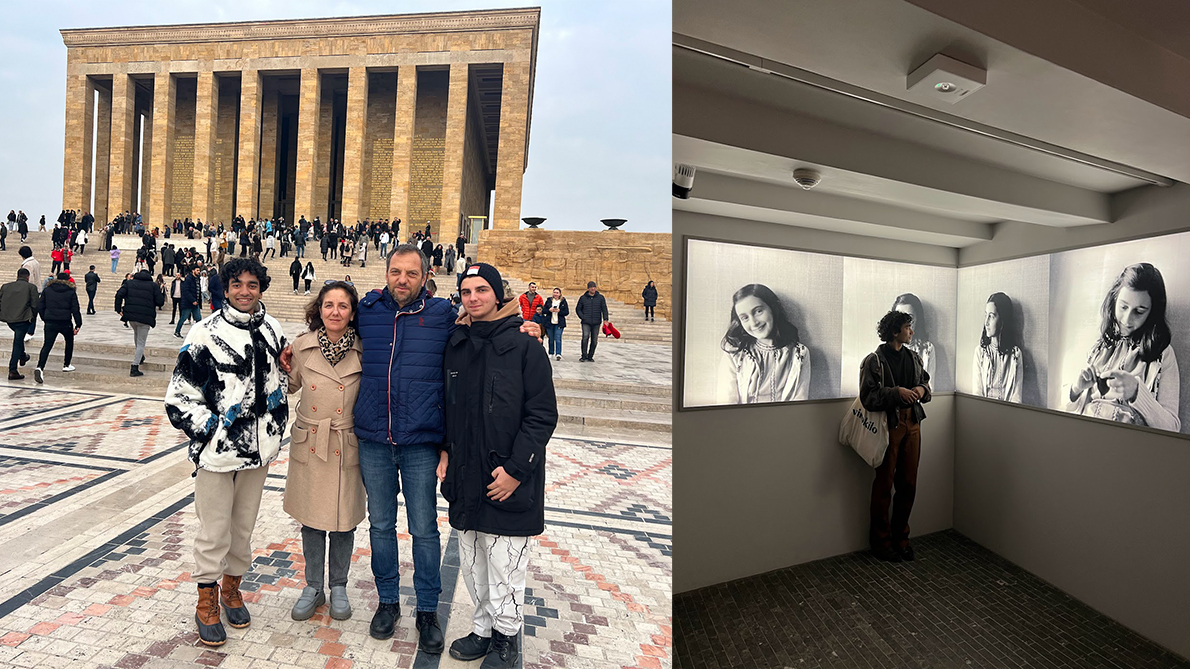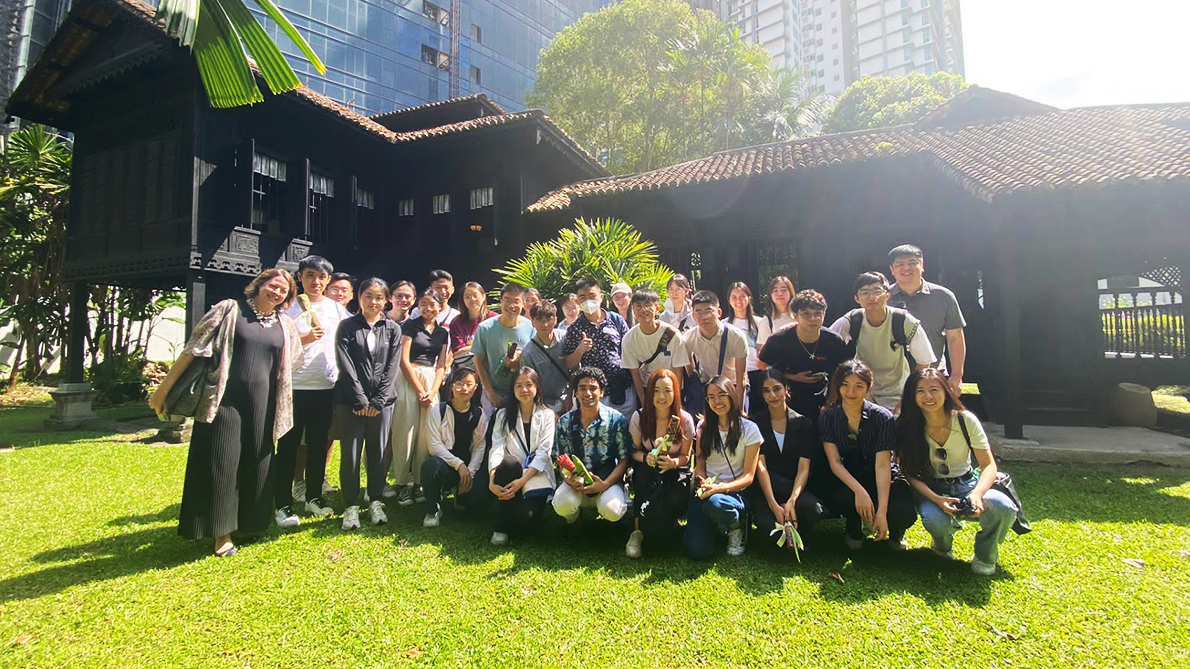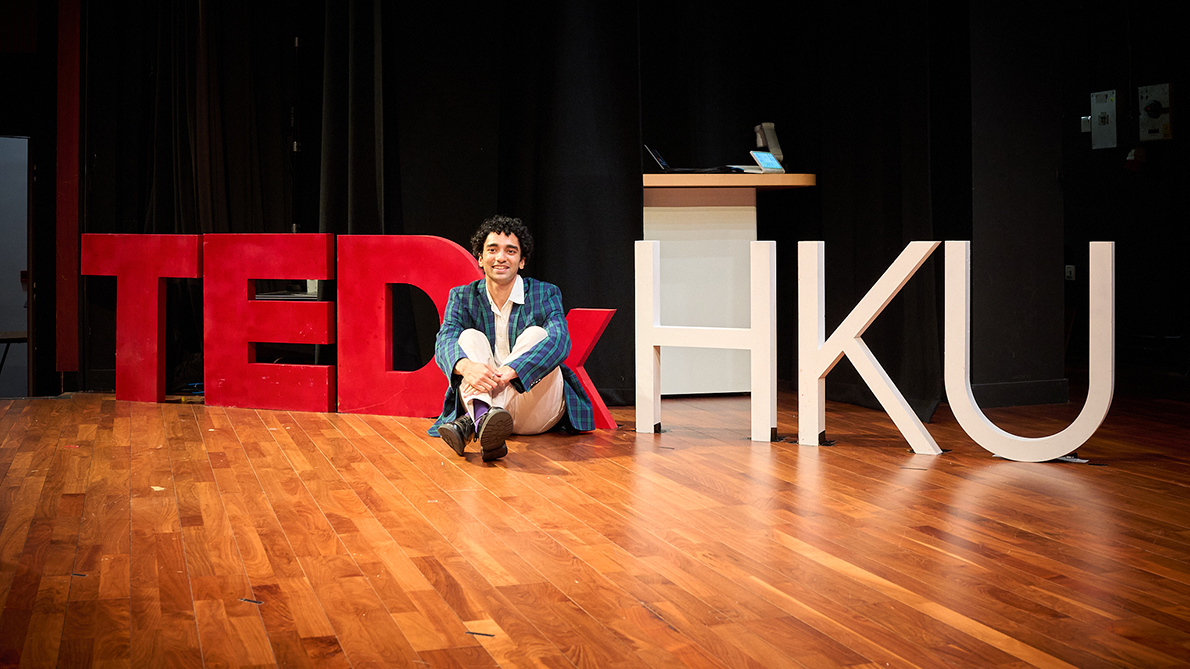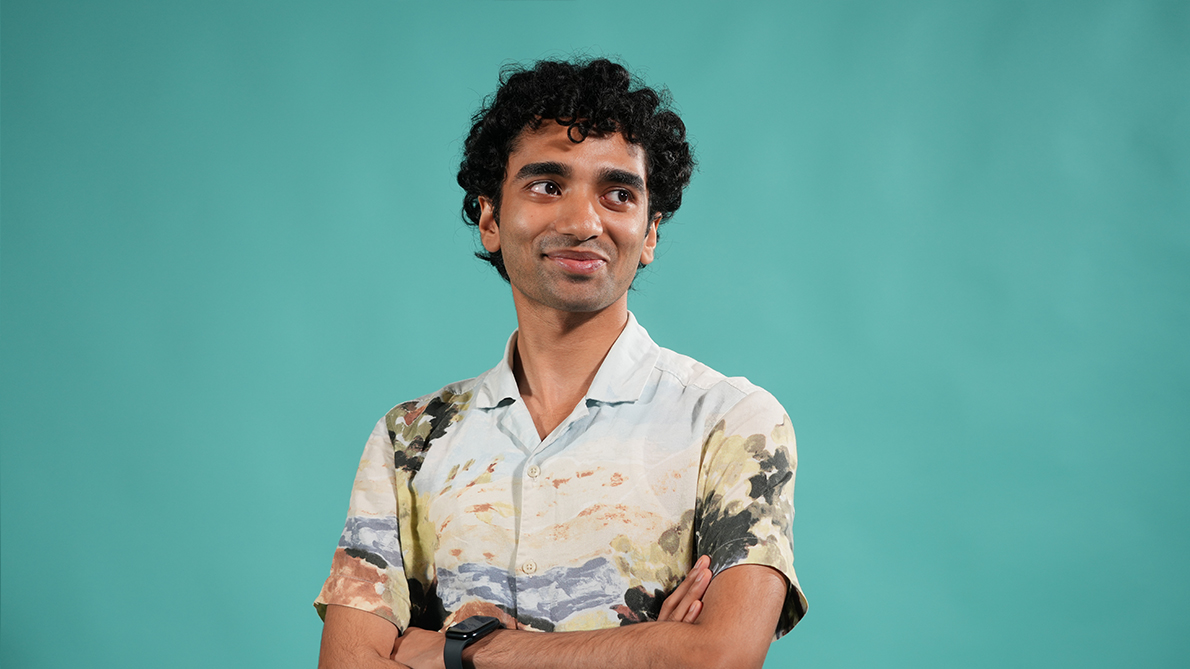Healing Trauma with One Small Step Each Day
Yusuf Mohideen (BSocSc)
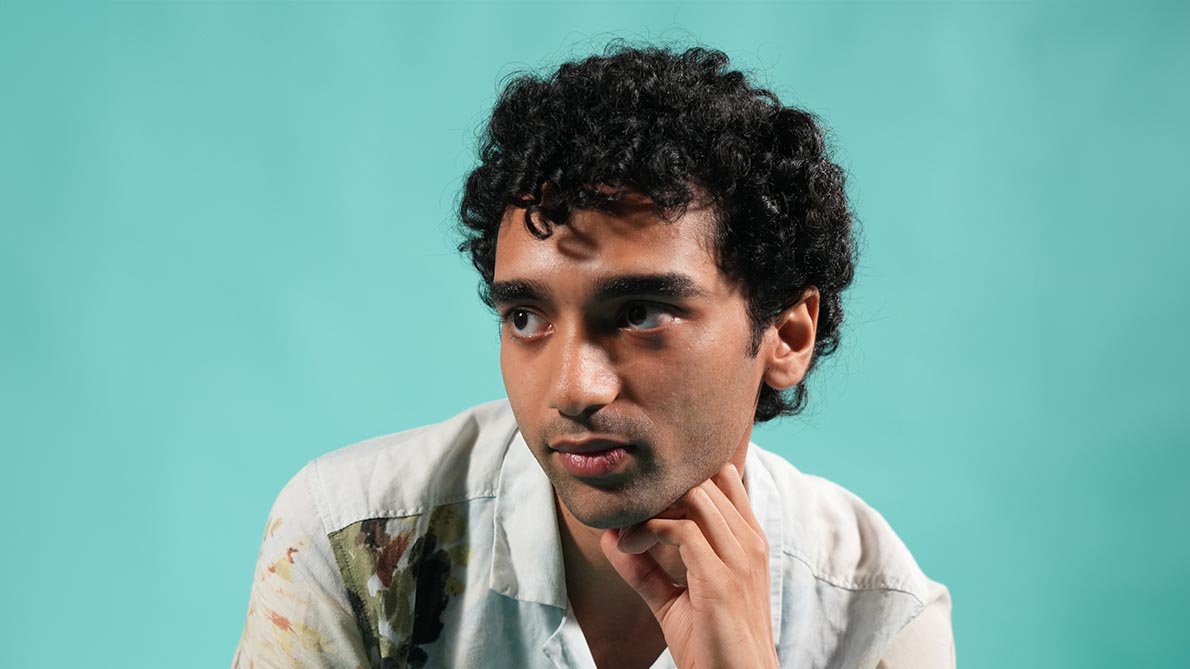
Ripples are a big deal for Yusuf Mohideen. Whether it be studying the effects of intergenerational trauma, preparing for his first TED Talk, or working in the lab, Yusuf returns often to this idea of the ripple effect, repercussions, and the neurological science behind the intimate, personal stories that can shape our lives.
Yusuf’s childhood was a complex Venn diagram of overlapping pressures and expectations. As the eldest son in a very traditional household, rooted in century-old South Indian practices, life could feel suffocating, especially while growing up in modern Hong Kong. “When I was young, I was limited by the things I could wear, the things I could do and the people I could interact with, because of gender norms and expectations,” he says, recounting how he was forbidden to touch or hold hands with girls in junior school. “My teachers didn’t understand what was going on. We were all just children!”
While he respects and honours the many beautiful aspects of his culture, the proscriptions and taboos that permeated his community were some of the driving forces that gave direction to his educational journey. “My interest in the field of psychological research on trauma specifically originated from the stories I had heard about domestic violence and other forms of violence in ethnic minorities in Hong Kong,” he says, adding, “So many South Asians find it difficult to talk about taboo concepts of trauma because of our cultural upbringing. We live under a blanket of cultural constructs unique to certain ethnic minority communities and that include things like child marriages, dowries, and patriarchal dominance, for example.”
But even the prospect of studying psychology at HKU proved challenging for Yusuf, as his parents had expected him to either become a doctor or a lawyer. “I managed to change their perception by showing them how the field of psychology, when merged with neuroscience, was still aligned with medical topics, which was what they wanted,” he says. At HKU, he majored in neuroscience and psychology and graduated with a BSocSc (Bachelor of Social Sciences) in 2023. He pursued a Masters’ degree in the same field and gained experience in the field of neurodegenerative diseases, before potentially continuing at the doctoral level in the future.
“Currently, there are very few papers on trauma in Hong Kong, which means that this topic is heavily understudied, and thus there is a lack of proper awareness and support given,” he notes. He hopes to gradually contribute to building the research in this area that will lead to more supportive government policies on mental health issues at large.
He credits HKU with providing him with not just a more international outlook, but actual global opportunities. Not only was he able to meet students from around the world and their diverse and often eye-opening perspectives, he acknowledges that HKU is also a hub of rich resources that has provided him with many networking opportunities, locally and globally – such as a spina bifida research trip to Malaysia, a visit to University Student Leadership Symposium (USLS) in Thailand, and an AIESEC English education volunteering programme in Turkey.
“Through HKU’s student exchange partnerships, I got to visit Europe for the first time, forged lifelong friendships, and met so many interesting people,” he says, noting enthusiastically, “I was finally able to visit the Anne Frank Museum, which I’ve been obsessing over since I was 11 years old, as well as the town where one of my favourite movies, ‘Call Me by Your Name’, was filmed.”
Through the HKU Common Purpose Summer Program at Kuala Lumpur, Malaysia, Yusuf became a research volunteer for a medical organisation focusing on spina bifida. There, he had a chance to meet some patients living with the spinal cord condition. The experience made him realise that, despite his own trauma and challenges, he was already very fortunate in his own way. “I didn’t realise how being able to do simple things – like being able to move your body, to run, to walk, to eat properly and not be constantly dependent on medication – that in itself was a big privilege,” he says. “It made me feel like there truly is a purpose in studying neuroscience, and reminded me that there are actual lives at stake in this field.”
There are not many undergraduates anywhere in the world who can claim that they delivered a TED Talk, and Yusuf is a member of this select group. “I was shocked when they asked me!” says the student of trauma studies, laughing. “I spoke about the neurobiological effects of intergenerational trauma within racially marginalised communities in Hong Kong. I included some typical family memories and experiences that deeply affected me emotionally,” which he hoped opened up a space to discuss these issues in a healthy manner.
Ironically, the TED Talk was also a moment that brought closure for him. Not only was he able to lay bare many of the deeply personal traumatic experiences of his youth, he was also able to tackle head-on one of his childhood fears: stage fright. “A lot of times, when you have trauma, you second guess yourself. There’s a lot of self-doubt.” The TED Talk let him reveal himself at his most vulnerable, and then come out stronger for having faced it.
Ultimately, Yusuf is driven by a humanitarian dream to potentially help survivors of war and psychological trauma. And he will do it through small steps. “Even though I’m just at the beginning of my career, my motto has always been to just ‘do one small thing a day’; just one small effort to change something that I did not do before.” These small gestures are accretive, and unlike trauma, they can be immensely positive. “Differences are made in the ripples that amount to an ocean. Each person is unknowingly putting energy back into the world that they’ve gained in the past.”

